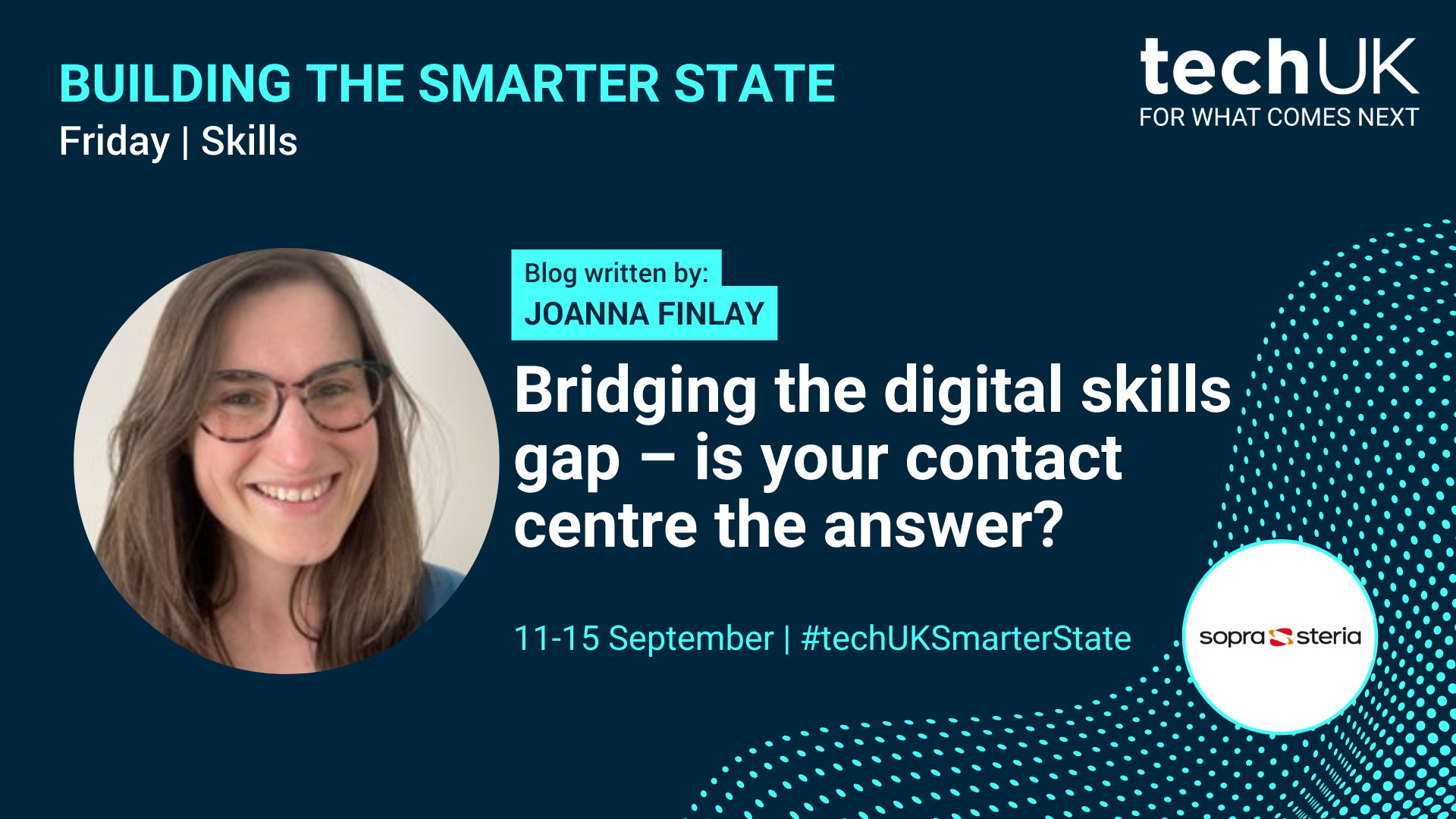Sopra Steria: Bridging the digital skills gap – is your contact centre the answer? #techUKSmarterState
We know that digital migration and data modernisation are key to achieving positive outcomes in public sector services. Services are investing huge amounts of the public purse into pursuing these goals, and rightly so. Legacy systems and siloed servicing channels cannot deliver the efficiencies needed. But in the focus on digital and data, could we be at risk of forgetting the human element?
Any good transformation lead will know that ‘build it and they will come’ simply doesn’t apply to how citizens engage with service transformation. Trust needs to be earned. Behaviour change needs to be motivated. Who better to build that trust and encourage that change than your frontline colleagues?
It may not seem like the obvious choice. Why would your contact centre colleagues want to encourage digital adoption, when service users' resistance is, arguably, keeping them in a job?
Focus on empowering the front line
The truth is that no one wants to answer repetitive queries about simple tasks that people can action themselves. Frontline staff would rather spend time where their experience, empathy and professionalism can make a difference to people who genuinely need their expertise. They want to end their working day knowing that they have truly supported their fellow citizens. Your job is to show them the connection between the two: if advisors’ time is reserved for the truly valuable conversations – thanks to an uptick in digital adoption that they themselves drive– everyone benefits. Digital adoption isn’t the enemy, or the inevitable to be avoided. It could be the key to good, meaningful work.
Nor is the contact centre the digital adoption silver bullet; according to Ofcom, 6% of people have no device and no broadband or mobile data connection at home. However, many more will have digital access, without having the capability, confidence, or willingness to adopt digital self-service. This is where your frontline colleagues are key; spending just a few minutes taking a caller through an online process and showing them how to resolve simple queries themselves could pay dividends – especially if the whole frontline team is bought-in and adopts this approach every day.
So how do you do it? Here are three considerations for investing in frontline capability as a catalyst for positive change:
Engagement – frontline colleagues will know better than anyone else what service users will think, feel and do in response to service changes. Harnessing this insight will not only support the inclusive design of your services – delivering better outcomes for vulnerable users – but will drive engagement and trust between frontline and management, all doing the right thing together.
-
Provide basic training on inclusive design methods, so they can participate in harvesting user insight and draw on their own lived experience
-
Invite colleagues to try out service transformations you are considering, such as AI-powered IVRs, chatbots or digital coaching, then actively listen to their feedback
-
Proactively share how insights have strengthened service design, giving colleagues a richer understanding of how their role and digital services combine to deliver good outcomes
Empathy – humans thrive on connection. If frontline teams are not bought-into driving digital adoption, they can’t be expected to win customers over. If they are, and can see how it authentically delivers on the purpose and goals they share, they can be your biggest advocate for the changes.
-
Equip them with ‘why’ – why is digital migration necessary, and good?
-
Use human-centred design to ensure they feel heard, and their empathy is reflected in the language of your digital services, combining the best of human emotional intelligence and AI
-
Demonstrate how they, and end-users, are co-beneficiaries and not victims of change
Enablement – most frontline workers would rather have meaningful interactions than simply meet their call handling targets. Giving colleagues new opportunities to upskill in digital enablement (coaching customers on how to adopt digital services) is aligned with social value principle of Good Work – it’s purposeful, transferable and has relevance in real life.
-
Break down siloed thinking (service channels are either offline or online)
-
Upskill colleagues to encourage and support users to self-serve, when it suits them – especially by helping them trust in the ethical use of AI to maximise ease and effectiveness
-
Empower colleagues with tools and knowledge to make a difference, particularly to those who are at risk of being left behind, or genuinely need and value human service.
What those working in contact centres believe and convey to service users could make or break the success of your service transformation. Invest in their skills and engage them as co-beneficiaries of change; you’ll not only drive greater social value, but better service outcomes.

Joanna Finlay is Consulting Manager in Financial Wellbeing, Inclusion & Vulnerability at Sopra Steria.
To find out more about digital service adoption, reach out to Joanna at [email protected].
From 11 – 15 September techUK is running our annual Building the Smarter State Week in the run-up to the ninth edition of our flagship public services conference, Building the Smarter State, on Wednesday 27 September. Book your tickets here.

